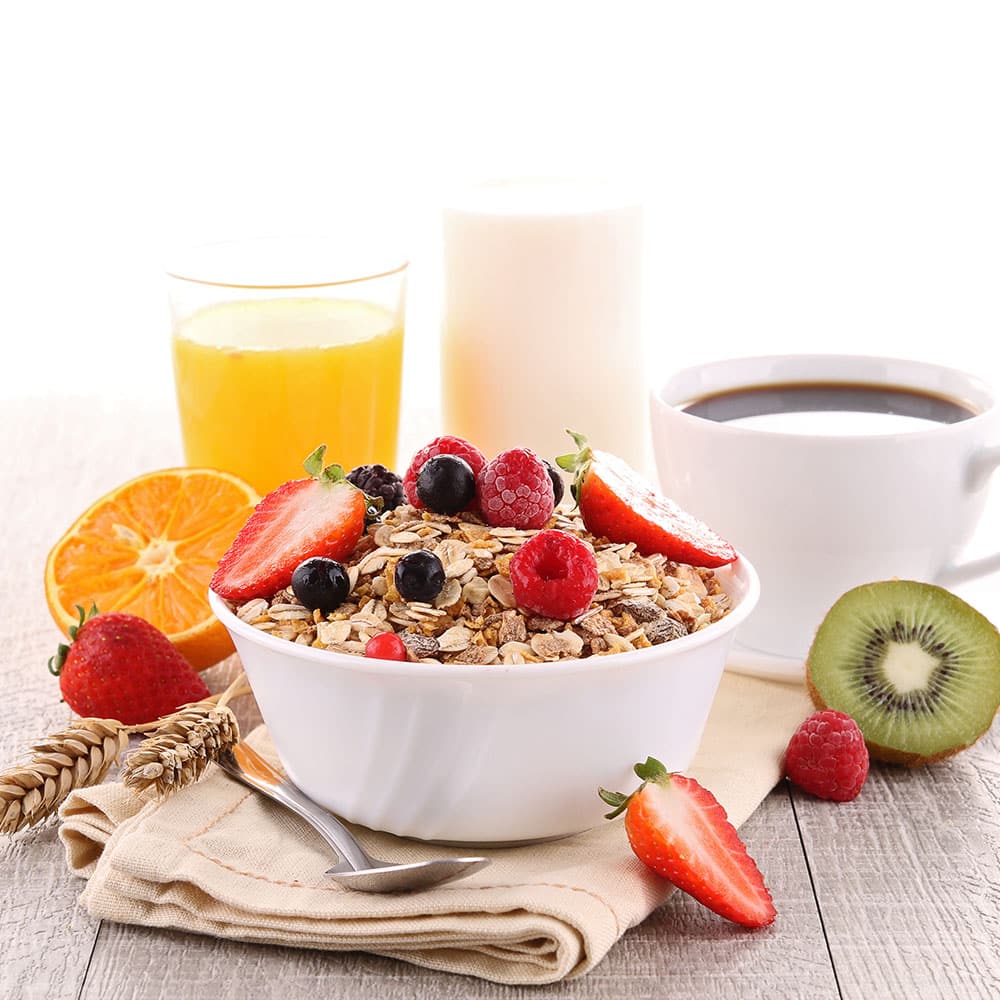What we eat/drink after waking up has been shown to have a huge impact on our moods, energy level, and cognitive performance throughout the day, now this study published in The Journal of Clinical Endocrinology & Metabolism suggests that breakfasts plays an even bigger role in overall health than what was once though.
Over 3 three days 16 men who alternated between consuming a low calorie breakfast and high calorie dinner and high calorie breakfast and low calorie dinner were evaluated, diet induced thermogenesis was tracked as well as overall hunger, blood glucose levels, and food cravings.
On average DIT was discovered to be 2.5 times higher after breakfast, showing that metabolism appears to be more active after eating breakfast. Consuming a high calorie breakfast was linked to lower hunger pangs and cravings for sweets throughout the remainder of the day, while a low calorie breakfast was more likely to cause snacking and tending to eat larger meals at dinner.
Additionally insulin and blood glucose levels were lower after the big breakfast when compared to dinner. Findings may have implications for those looking to lose weight, as well as those with diabetes who may have higher than normal blood glucose levels.
“Our results confirm that a large dinner has particularly negative effects on glucose tolerance, which should be considered by diabetic patients looking to avoid blood glucose peaks,” the researchers stated in the study. “An extensive breakfast should therefore be preferred over large dinner meals to reduce the risk of metabolic diseases,” they added.
Small breakfast is a common dieting practice, but according to the researchers the science shows that those who eat less for breakfast often snack more and overeat later in the day which is bad for weight loss goals; also those that skip breakfast tend to have a hard time controlling their calorie intake.
“This goes against our normal circadian rhythms, and for some with a strong morning hunger signal, it can lead to overindulgence once the fast is ‘broken’ at the midday meal,” says Dr. Minisha Sood, an endocrinologist at Lenox Hill Hospital in New York City. “It can also lead to overeating at dinnertime in part due to the psychology of ‘making up for lost calories,’ and this often backfires,” she added.
Metabolism is influenced by the circadian rhythm, people are more insulin sensitive in the morning, meaning the body needs to produce less insulin to control blood glucose levels after eating, according to Sood. Additionally people are more physically active in the mornings and daytime, this physical activity also helps to manage insulin and blood glucose levels.
“We are most efficient at metabolism in the morning hours and the most insulin sensitive in the earlier part of our ‘eating window,’ therefore it makes sense that our diet-induced thermogenesis [DIT] and overall metabolism would be more effective in the earlier part of the day,” Sood said.
According to Dr. John Magaña Morton, the division chief of Yale Medicine Bariatric & Minimally Invasive Surgery, metabolic rates slow at night making it harder for the body to digest food and burn for fuel, meaning that it may be better to consume the bigger meals earlier in the day, especially for those trying to lose weight. A well balanced breakfast including food such as fruit, eggs, oatmeal and yogurt may be the way to go, while avoiding processed and sugary foods that get absorbed quickly and can cause spike in blood sugar levels.
“One saying I believe in is that you should eat like a queen for breakfast, princess for lunch, and pauper for dinner,” Morton said.
This study suggests that eating a big breakfast may help people to burn twice the amount of calories, and control hunger pangs as well as cravings throughout the day which may be helpful to those trying to drop some weight. Additionally those with diabetes should prioritize breakfast rather than dinner as it is linked to lower insulin and blood glucose levels.




